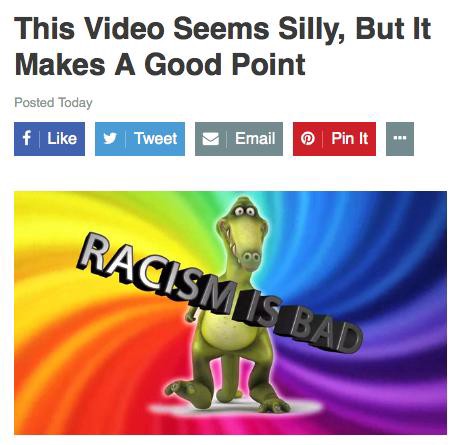The ClickHole Paradox
The ClickHole Paradox

ClickHole, The Onion’s new spinoff site, is funny. This wasn’t a given! It’s kind of a risky proposition, to make fun of a media just old enough to recognize but still too new to fully understand. The site is mean without coming off as bitter, it nails its tone. That is probably enough frog dissection: It is a good parody of the viral internet.
What it excels at now, though, is media criticism, which seems to be the source of what little backlash I’ve seen: How many times can you do the same list joke, or quiz joke, or Upworthy joke? But if you were to characterize The Onion proper as a media criticism project then it’s been doing the same half-dozen jokes forever: Fake news in deadpan voice, news trope gone surreal, stodgy editorial that goes off the rails after a few sentences — those are all accurate descriptions but don’t do justice to what The Onion actually does. These are reusable jokes that provide a starting point for new material. Writing something false in the recognizable voice of truth is an effective device only if what follows is also funny. It’s a setup.
And what we’re laughing at on ClickHole now are, for the most part, demonstrations of setups. They are pure criticisms of tone and form: Of the breathless celebrity tribute list, the manipulative video with a curiosity-gap headline, the highly specific personality-based quiz, the dramatic repackaging of obvious trivia (“5 Iconic Movie Scenes That Were Actually Fake”).
In feed terms, because this is really a site about madness caused by FEEDS, the first wave of ClickHole jokes are about Facebook and for Twitter. Twitter is where you make fun of Facebook,* and that’s what a lot of these posts indirectly do. In another context you might call this optimization. You might call it that in this context, too! But the real test for ClickHole comes when people start wielding it as a tool on Facebook itself, when, presumably, the site takes on individual social media news-fo-tainment phenomena in real time. If cable news shows seen by a couple million people a night are worthy of constant parody, why not viral videos shared and seen by ten times more?
WHICH BRINGS US TO THE PROBLEM.
You might share an article from The Onion on Facebook because it’s funny, and because it pokes fun at someone, or something, that you think is dumb or bad or irritating. On the latter you always have a little bit of deniability: It’s not about you, is your defense, it’s about [an ill-defined] them. Or you might say, to your angry cousin or old college roommate, that the joke isn’t about an election, it’s about the way the media covers the election. What’s different about ClickHole’s criticism is that it directly implicates people you know: On Facebook, there is no denying that they are the “them” you’re responding to; their behavior is an essential part of the media that’s being mocked. One of the best ways to get people to share CONTENT is to appeal to their identities, and identity-based content is difficult to talk about or criticize without making things seem personal.
The best case scenario is that ClickHole articles mingle in everyone’s feeds directly adjacent to the posts they’re making fun of, as answers or rebuttals or shrugs or accompaniments or some sort of vague equalizing force for…cynicism? If the material stays good, and why wouldn’t it, the whole thing might even feel sort of righteous. It could definitely work! It’s just kind of a lot to ask of people — it’s actually an AMAZING thing to ask of people, for your new website — to tell their friends that they’re idiots.
*And real life is where you make fun of Twitter.
